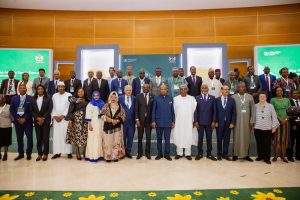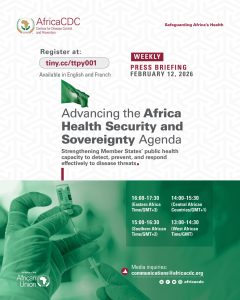The vertical transmission of HIV, syphilis, and the hepatitis B virus remains a serious public health threat. Millions globally are living with HIV, with a significant proportion in Africa. Over 91 million Africans are affected by hepatitis, contributing to 1.2 million infections and 125,000 deaths in 2029 alone.
When the inaugural Triple Elimination Conference (TEC) in Africa took place from 21–23 July 2025 in Kampala, Uganda, health experts, policymakers, researchers, civil society organisations, and patient advocates rallied behind efforts to eliminate the problem.
“Africa remains disproportionately affected by these diseases, which continue to weigh heavily on our public health systems and impact our capacity to provide quality health care,” said H.E. Amb. Amma Twum-Amoah, Commissioner for Health, Humanitarian Affairs and Social Development (AUC), representing the Chairperson of the AU Commission, H.E. Mahmoud Ali Youssouf.
Dr Jean Kaseya, Director-General of the Africa CDC, commended Uganda for its strong political commitment in fighting HIV, syphilis, and hepatitis B. He said Africa CDC is focusing its efforts on four key strategic priorities to guide support for Member States and continental partners.
He explained that Africa CDC is committed to strengthening pandemic response by building resilient systems, preventing and detecting public health emergencies, and responding rapidly to protect lives. The organisation is also working to secure sustainable access to health products by promoting local manufacturing of vaccines, diagnostics, and therapeutics, while mobilising sustainable financing mechanisms. In addition, Africa CDC seeks to transform primary health care by empowering community health workers, investing in digital health solutions, and expanding access to integrated services to make Universal Health Coverage a reality.
“I would like us to remember that women, children, grassroots leaders, and communities must be at the centre and heart of our movement,” said Dr Kaseya, adding: “We must empower local champions to generate demand, combat stigma, and drive accountability. Together, let us transform the future of millions of mothers, children, and families across Africa.”
After discussing innovative strategies, policy frameworks, and community-driven solutions for achieving the triple elimination goal, the meeting concluded by endorsing the need for urgent and coordinated action to eliminate vertical transmission of HIV, syphilis, and hepatitis B by 2030.
The Call to Action, released during the three-day meeting, urged AU Member States to develop and fund national plans; allocate adequate and sustained financial resources; ensure that 95 per cent of newborns receive a timely dose of the hepatitis B vaccine; and address structural and systemic barriers such as stigma, gender inequality, and limited access to health care.
The African Union Commission, Africa CDC, AUDA-NEPAD, the African Medicines Agency, and Regional Economic Communities were tasked with advocating for the allocation of adequate, diversified, and sustained financial and technical resources from both domestic and international sources.
The group was also requested to establish a regional hub to share evidence, best practices, and lessons learnt, and to ensure the elimination of vertical transmission of HIV, hepatitis B, and syphilis. They will also mobilise political leadership to advocate for legislation and budget allocations, and accelerate initiatives to build capacity for the manufacture of quality health products.
Development organisations, partners, and civil society were called upon to support Member States in developing, adopting, and implementing costed national plans for the elimination of vertical transmission.
At the 13th International AIDS Society (IAS) Conference on HIV Science, held in Kigali, Rwanda, from 13–17 July 2025, the World Health Organization (WHO) presented its first-ever guidance for countries to develop comprehensive and integrated programmes for triple elimination.
Triple elimination, as a global WHO initiative, encourages countries to provide the most effective, high-quality, and person-centred care to pregnant and breastfeeding women and girls. By doing so, countries can ensure a generation born free of HIV, syphilis, and hepatitis B.







